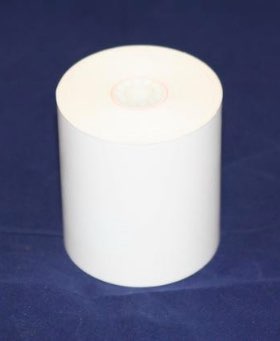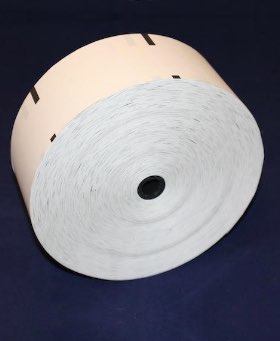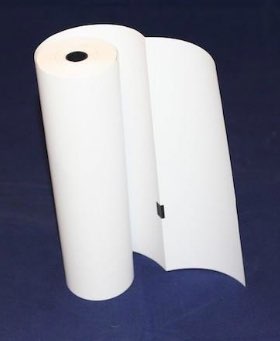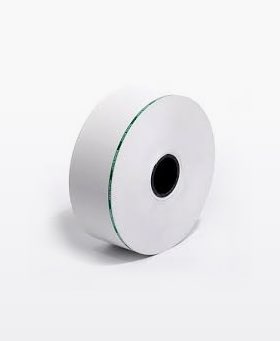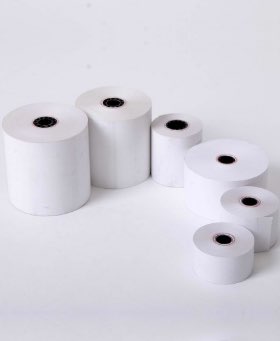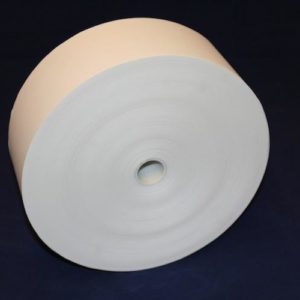
How Do Non-BPA Thermal Paper Rolls Have A Significant Role In The Healthcare Industry?
Do you ever wonder how the healthcare industry relies on paper? Paper rolls are vital in healthcare, from doctor’s offices and hospitals to therapy centres and medical labs. In this blog post, we will discuss how paper can help improve safety and efficiency in the healthcare setting—from providing reliable patient information documentation to creating efficient pharmaceutical barcoding systems. Through such information, we’d be able to gain a better understanding of how vital role paper plays in the healthcare industry. Utilizing paper records for patient care is crucial. Doctors can include more detailed information with paper records and improve patient care. Additionally, healthcare professionals can closely monitor patients and easily identify patterns in their condition, tracking improvements or deterioration over time.
Furthermore, paper records are more reliable as studies show electronic medical systems provide only 60% accuracy and depend on the staff’s technical background. Paper-based systems also leave less room for errors in data entry which is crucial in-patient care. The second-way paper helps the healthcare industry is through barcoding/labelling medications. Barcodes enable doctors and nurses to quickly ensure that medications are accurate for each patient—thus preventing mislabeling or incorrect dosages. Additionally, barcodes help streamline patient medication tracking, providing health professionals with a fast and efficient way to access pertinent information such as allergies and drug interactions. This also reduces the risk of medical fraud since all transactions are recorded properly with clear labels.
Accessing a patient’s information on a sheet of paper allows for quick monitoring of their health status, enabling healthcare workers to take appropriate action. Maintaining an accurate, up-to-date inventory is critical to the healthcare industry and should be easily accessible and trackable. So, if you want to understand how medical paper rolls are used today, join us as we explore their unique contribution to the healthcare industry!
What is the role of paper in healthcare and why is it relevant?

Paper-based medical records play a pivotal role in healthcare. They provide the necessary documentation, from patient history to diagnosis and treatment plans. Paper-based records also store confidential data, such as insurance information or Social Security numbers, ensuring privacy and security. Furthermore, paper-based records have been found to be more reliable than electronic records since they are less likely to suffer from system glitches or be tampered with.
Another way paper helps the healthcare industry is through efficient pharmaceutical barcoding systems. These systems use paper rolls as labels, scanned and matched to medication dosages and patient data. This provides medical staff an accurate record of who gets what medication and when. Additionally, the barcode system can help reduce medication errors and ensure the right patient receives the correct dosage.
Finally, paper rolls are often used in medical laboratories for testing purposes. Paper-based samples are often more reliable than electronic or digital ones since they can provide accurate results with minimal risk of errors. Furthermore, paper-based samples can be sent to different labs quickly and easily, making them ideal for large-scale testing projects.
The 3 benefits of paper in the healthcare industry
Having understood the fundamentals of how vital paper is when it comes to the healthcare industry, here are 3 simple yet beneficial ways based on how the healthcare industry relies on the efficiency of paper:
1. Access patient data immediately

Paper-based medical records make it easy for healthcare providers to access critical patient data quickly and accurately. This reduces the risk of errors due to incorrect or incomplete information, helping ensure patients receive the best care. In the medical room, emergencies happen frequently. Therefore, doctors cannot waste time searching through records. Instead, with paper records documentation, accessing required data on-the-spot is an ideal option. With that being done, a lot of time can be saved, and the doctors can focus on their patients immediately!
On the other hand, if everything had to be managed by digital records, unnecessary delays like network disconnection, glitches, and slow loading speed would be common. Therefore, these can be avoided when healthcare industries create a backup of their records on paper.
Monitoring patient closely:

Talking about technology, there are certain norms for accessing patient information, like entering individual user IDs and passwords into systems. This brings up various charts and records which were manually fed into it. But everyone around us doesn’t need to be THAT technically sound and proficient with their typing. That is why using paper for patient care is a vital aspect. When paper records are used, doctors can easily add more details and provide the patient with better care. It also gives healthcare workers the ability to monitor patients closely. This allows them to easily spot patterns in their condition and track improvement or deterioration over time.
All of this is done by slipping out a sheet of paper which contains information on the patient, and through that information, they can quickly monitor his/her health status and work on what’s next accordingly. The healthcare industry’s most important aspect is having an accurate, up-to-date inventory. It should be easily accessible and can be tracked with ease. That’s where paper rolls come into play. Through barcodes printed on the medical paper rolls, it can help maintain a record of the stock of medicines and other medical items.
Decreased miscellaneous costs:

Be it the healthcare sector or any other industry, it goes without saying that daily functioning always relies on the Internet. But do you know the internet can bring additional costs, like electricity bills, hardware maintenance, and system maintenance charges?
Since paper-based medical records come with way fewer expenses when compared to digital ones, this plays a great role in saving money for the healthcare industry. It also helps to limit unplanned budget overruns due to unexpected software or hardware malfunctions. Whether handwriting essential documents on paper or storing important records in document folders, these cost-saving methods can help you manage various medical miscellaneous functions without paying an extra penny.
Conclusion: The Power of paper in Health care
Paper-based medical records have been integral to the healthcare industry for centuries, and their importance has grown with time. It plays a vital role in helping to protect patient data, maintain compliance requirements, and provide efficient care. By leveraging 3 simple tools – paper-based medical records, digital scanning solutions, and record-keeping systems – healthcare organizations can make the most of their paper records and ensure they continue to be valuable for patient care. With its many benefits, it’s no wonder the healthcare industry continues to rely on paper as an important part of its operations!

